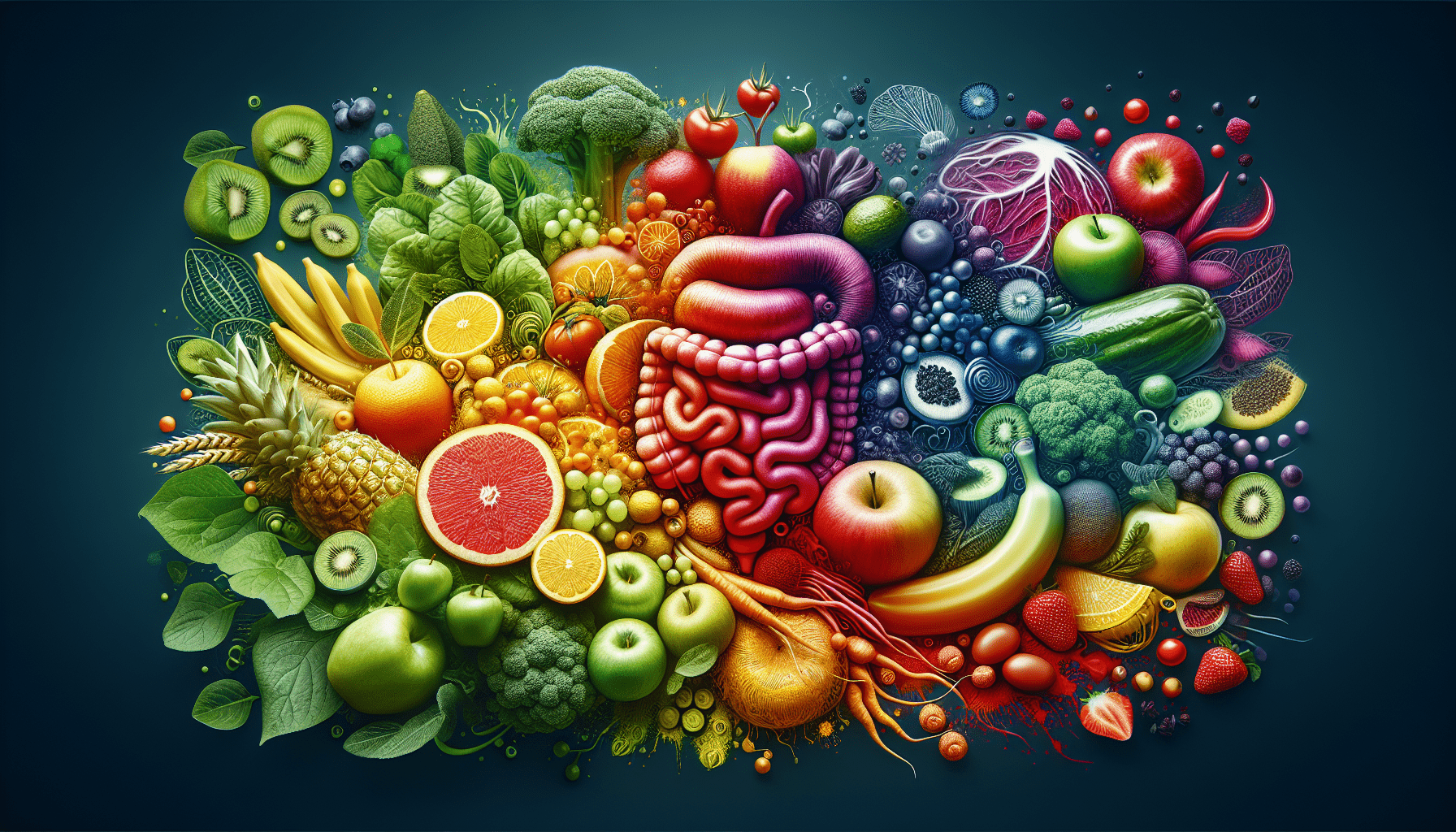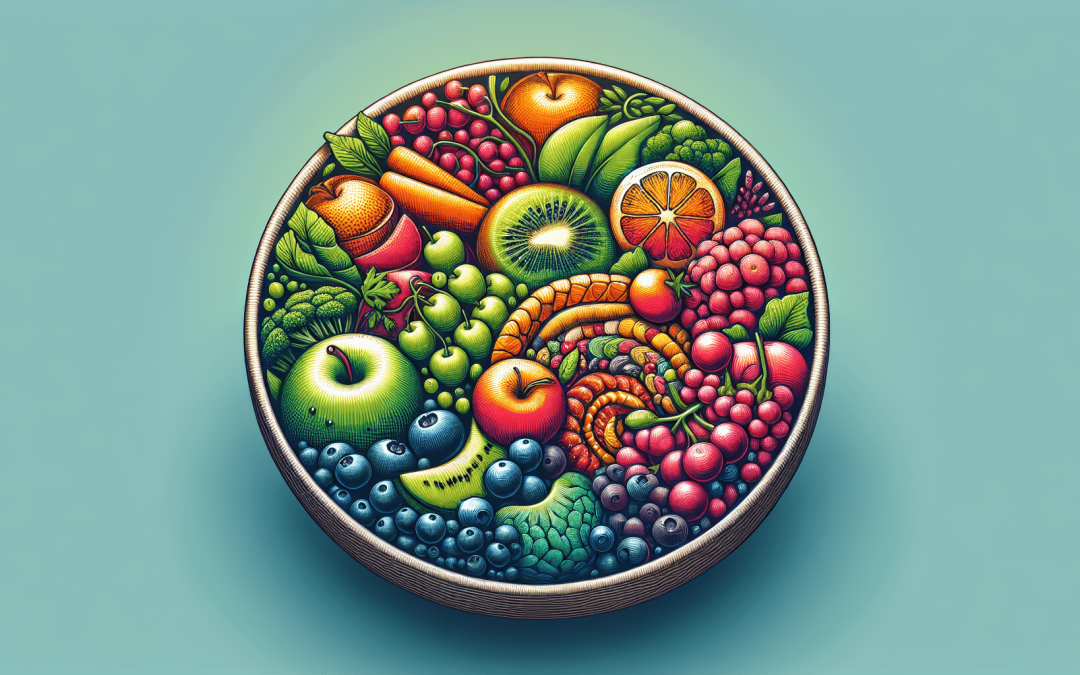Are you looking to improve your overall gut health? Look no further! In this article, we will explore holistic approaches to gut detox that can help you achieve a healthier digestive system. From incorporating gut-friendly foods into your diet to practicing relaxation techniques, we will cover a range of techniques that will leave you feeling rejuvenated and refreshed. Whether you are dealing with digestive issues or simply want to optimize your gut health, these holistic approaches are sure to make a positive impact on your overall well-being. So, get ready to discover a world of possibilities for a healthier gut!
Understanding Gut Detox
What is gut detox?
Gut detox is the process of eliminating toxins and waste from the digestive system to promote better gut health. It involves adopting dietary and lifestyle changes that support the body’s natural detoxification processes and help improve overall well-being.
Why is gut detox important?
Gut detox is essential because a healthy gut plays a crucial role in our overall health. The gut is responsible for breaking down the food we consume, absorbing nutrients, and eliminating waste. When the gut is overloaded with toxins and waste products, it can lead to various health issues such as bloating, constipation, inflammation, and decreased immunity. By undergoing gut detox, you can enhance digestion, improve nutrient absorption, boost energy levels, and strengthen your immune system.
How does gut detox work?
Gut detox works by focusing on nourishing and supporting the digestive system. It involves adopting dietary approaches, incorporating herbal remedies, managing stress levels, incorporating detoxifying supplements, exercising regularly, maintaining proper hydration, making lifestyle changes, and implementing detoxifying practices. These holistic approaches work synergistically to eliminate toxins from the gut, restore balance, and promote optimal gut health.
Dietary Approaches to Gut Detox
Fiber-rich foods
Including fiber-rich foods such as fruits, vegetables, whole grains, legumes, and nuts in your diet can aid in gut detox. Fiber acts as a natural cleanser, promoting regular bowel movements and preventing the buildup of toxins and waste. It also acts as a prebiotic, feeding the beneficial bacteria in your gut and improving overall digestive health.
Probiotics and fermented foods
Probiotics are beneficial bacteria that support gut health. Consuming probiotic-rich foods like yogurt, kefir, sauerkraut, and kimchi can help replenish the good bacteria in your gut and restore balance. Fermented foods also contain enzymes that aid in digestion and break down toxins, promoting detoxification.
Plant-based diet
A plant-based diet is rich in fiber, antioxidants, and phytonutrients that support gut detoxification. By focusing on consuming a variety of fruits, vegetables, whole grains, nuts, and seeds, you provide your body with essential nutrients and promote a healthy gut ecosystem.
Elimination diet
An elimination diet involves temporarily removing certain foods from your diet that may be causing gut inflammation or intolerance. This allows your gut to heal and reset. Common trigger foods like gluten, dairy, soy, and refined sugar are eliminated and gradually reintroduced to identify potential culprits behind gut-related issues.
Herbal Remedies for Gut Detox
Aloe vera
Aloe vera has natural detoxifying properties that help soothe and heal the gut lining. Its gel contains enzymes that aid digestion, reduce inflammation, and promote the elimination of toxins. Consuming aloe vera juice or adding fresh aloe vera gel to smoothies can be beneficial for gut detox.
Peppermint
Peppermint has long been used for digestive issues due to its antispasmodic properties. It helps relax the muscles of the gastrointestinal tract, relieving symptoms such as bloating and abdominal discomfort. Peppermint tea or oil can be used to support gut detox and alleviate digestive distress.
Ginger
Ginger is a powerful herb that aids digestion and reduces inflammation in the gut. It helps stimulate digestion, relieve bloating and gas, and supports detoxification. Consuming ginger tea or adding fresh ginger to meals can enhance gut health and promote detoxification.
Turmeric
Turmeric contains an active compound called curcumin, which possesses potent anti-inflammatory and antioxidant properties. It helps reduce inflammation in the gut, supports liver health, and aids in detoxification. Adding turmeric to your meals or consuming it in the form of turmeric tea can be beneficial for gut detox.
Stress Management Techniques
Meditation and mindfulness
Meditation and mindfulness practices can help reduce stress levels, which can negatively impact gut health. Engaging in regular meditation allows you to calm your mind, reduce anxiety, and promote a state of relaxation. Practicing mindfulness while eating also aids in digestion by enhancing awareness and promoting mindful eating habits.
Deep breathing exercises
Deep breathing exercises can activate the parasympathetic nervous system, also known as the rest and digest response. This helps counteract the effects of stress on the gut and promotes optimal digestion. Diaphragmatic breathing, alternate nostril breathing, and box breathing are effective techniques to incorporate into your stress management routine.
Yoga
Yoga combines movements, breathwork, and meditation, making it a holistic practice for stress management and gut health. Regular yoga practice helps reduce stress hormones, improve digestion, increase blood flow to the digestive organs, and promote overall well-being. Certain yoga poses, such as twists and forward folds, can specifically target the gut area and aid in detoxification.
Journaling
Journaling provides an outlet for expressing emotions and thoughts, reducing mental stress and promoting self-reflection. By journaling, you can gain insight into potential triggers for gut issues, track your symptoms, and identify patterns. It can also be a helpful tool in monitoring dietary changes and their effects on gut health.

Detoxifying Supplements
Digestive enzymes
Digestive enzymes aid in the breakdown and absorption of nutrients, supporting healthy digestion. Supplementing with digestive enzymes can help optimize digestion, alleviate digestive symptoms, and improve nutrient absorption, ultimately supporting gut detoxification.
Milk thistle
Milk thistle is a herb known for its liver-supporting properties. Its active compound, silymarin, helps protect liver cells from damage, boosts liver function, and aids in detoxification. A healthy liver is essential for maintaining a clean gut, making milk thistle a valuable supplement for gut detox.
Glutamine
Glutamine is an amino acid that plays a vital role in gut health. It supports the maintenance and repair of the intestinal lining and enhances the gut’s overall integrity. Supplementing with glutamine can help heal the gut, reduce inflammation, and support detoxification.
Activated charcoal
Activated charcoal is a natural substance that binds to toxins and chemicals in the gut, preventing their absorption into the bloodstream. It acts as a powerful detoxifying agent by trapping toxins for elimination. Taking activated charcoal supplements can aid in gut detox by reducing toxin load and promoting their elimination.
The Role of Exercise
High-intensity interval training (HIIT)
HIIT workouts involve short bursts of intense exercise followed by periods of active recovery. HIIT can help improve gut health by enhancing metabolism and digestion, reducing insulin resistance, and supporting weight management. Including HIIT exercises in your fitness routine can be beneficial for both physical fitness and gut detox.
Yoga and Pilates
Yoga and Pilates are gentle yet effective forms of exercise that can support gut detoxification. These practices focus on stretching, strengthening, and toning the abdominal muscles, promoting healthy digestion and gut motility. Additionally, the relaxation and mindfulness aspects of these exercises can help manage stress, which is essential for gut health.
Cardiovascular exercises
Engaging in cardiovascular exercises such as brisk walking, jogging, cycling, or swimming can positively impact gut health. Cardiovascular exercise improves blood flow to the digestive system, stimulates bowel movements, and increases metabolism, all of which assist in gut detoxification. Aim for at least 30 minutes of moderate-intensity cardio exercises most days of the week.
Importance of Hydration
Benefits of drinking water
Staying properly hydrated is crucial for optimal gut function and overall health. Drinking an adequate amount of water helps soften stools, prevent constipation, and promote regular bowel movements. It aids in the digestion and absorption of nutrients while facilitating the removal of waste products from the body.
Infused water for detoxification
Infused water can enhance the detoxification process by infusing fruits, vegetables, and herbs into water, enhancing its nutritional content. For example, adding slices of cucumber, lemon, mint, or berries to water can provide additional antioxidants, vitamins, and minerals that support gut health and detoxification.
Herbal teas
Certain herbal teas have detoxifying properties and can help support gut health. Dandelion root tea, for instance, helps promote liver health and aids in the digestion of fats. Peppermint tea can soothe the digestive system, while chamomile tea helps reduce inflammation and relaxes the gut. Including herbal teas in your daily routine can aid in gut detox and provide additional hydration.
Lifestyle Changes for Gut Health
Adequate sleep
Getting enough quality sleep is crucial for gut health and overall well-being. During sleep, the body undergoes various repair and detoxification processes, including the elimination of waste from the gut. Aim for 7-9 hours of uninterrupted sleep each night to support optimal gut detoxification.
Reducing alcohol and caffeine consumption
Excessive alcohol and caffeine consumption can disrupt gut health and hinder the detoxification process. These substances can irritate the gut lining, disrupt the gut microbiota, and contribute to inflammation. Reducing alcohol and caffeine intake or opting for healthier alternatives like herbal tea can promote a healthier gut.
Avoiding processed foods
Processed foods, high in additives, preservatives, unhealthy fats, and sugar, can have a detrimental effect on gut health. These foods are often low in fiber and nutrients, promoting the growth of harmful bacteria and impairing digestion. Opt for whole, unprocessed foods to nourish your gut and support detoxification.
Managing stress levels
Chronic stress negatively impacts gut health and can hinder the detoxification process. Incorporating stress management techniques such as meditation, deep breathing exercises, and yoga into your routine can help reduce stress levels and support optimal gut function.

Detoxifying Practices
Dry brushing
Dry brushing involves using a natural bristle brush to gently massage the skin in circular motions before bathing. This practice stimulates the lymphatic system, promotes blood circulation, and aids in the removal of toxins from the body, including those that impact gut health.
Castor oil packs
Castor oil packs involve applying castor oil to a cloth and placing it on the abdomen for a specific period. The oil is believed to have anti-inflammatory and detoxifying properties. Castor oil packs help stimulate the liver, support digestion, and promote gut detoxification.
Sauna therapy
Sauna therapy involves exposing the body to high levels of heat, causing sweating. Sweating aids in the elimination of toxins through the skin and promotes detoxification. Regular sauna sessions can support gut health by assisting in the removal of waste products and promoting overall detoxification.
Consulting with a Healthcare Professional
The importance of professional guidance
It is important to consult with a healthcare professional before embarking on any gut detox program. They can assess your individual health conditions, provide personalized recommendations, and ensure that the chosen approach aligns with your specific needs and requirements.
Seeking advice from a nutritionist
A nutritionist specializing in gut health can provide valuable guidance on dietary approaches, supplementation, and lifestyle changes to support gut detox. They can help develop a customized plan tailored to your unique circumstances and dietary preferences, ensuring optimal results.
Considering individual health conditions
Individuals with specific health conditions such as inflammatory bowel disease, irritable bowel syndrome, or food allergies and intolerances should be cautious when undergoing gut detox. It is crucial to consult with a healthcare professional to ensure that the chosen approach is safe and suitable for your individual needs.
In conclusion, understanding gut detox is essential for improving gut health and overall well-being. By incorporating dietary approaches, herbal remedies, stress management techniques, detoxifying supplements, exercise, hydration, lifestyle changes, and detoxifying practices, you can support optimal gut health and promote effective detoxification. Remember to consult with a healthcare professional for personalized guidance and to consider individual health conditions when embarking on a gut detox journey. Through a comprehensive and holistic approach, you can give your gut the love and care it deserves.











